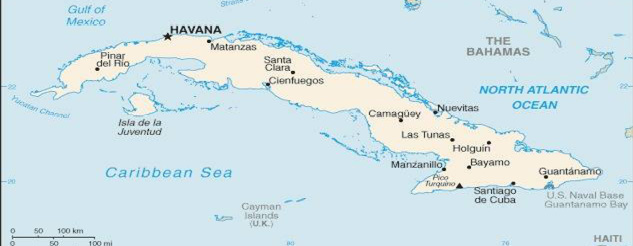by Nuria Barbosa León | Granma
“Cuba has always supported our people, the historical ties we share are inalterable and will be maintained as long as the Saharawi people exist,” insisted Omar Bulsan, registered under the name Mohamed Salec, who serves as ambassador extraordinary and plenipotentiary of the Arab Democratic Republic in Cuba.
In an interview with Granma, he recalled that bilateral ties were established before the 1973 war of national liberation, when Saharawi lands were still under Spanish occupation. Spain subsequently ceded the territory to Morocco and Mauritania, and independence was proclaimed on February 27, 1976.
Today the area remains occupied by Morocco, along with the extensive mineral deposits found there, including phosphate, oil, gas, iron, uranium and others. The Saharawis are confined in camps, where they suffer abuse and violations of their human rights, as Comandante en Jefe Fidel Castro noted in 1980, when he expressed support for the Saharawi people’s anti-colonial cause:
“I remember the moment when we received the first delegation of Cuban doctors in 1976, who evaluated, on the ground, the assistance needed in the refugee camps in southern Algeria, after the outbreak of a measles epidemic that left 400 children dead,” the diplomat said, highlighting the training of thousands of young Saharawi professionals in Cuba, over the years, and the Cuban medical brigade that has remained to date.
Diplomatic ties were established in the 1980s and the two countries established embassies in the other’s territory, but first exchanges at the political level were conducted between the leadership of the Communist Party of Cuba and members of the Polisario Front, the legitimate leading force of the Saharawi people.
“Bilateral relations were forged with mutual support and solidarity at the international level,” Bulsan recalled. The cease-fire established in 1991 forced the Saharawi people into a status quo, a vacuum with neither peace nor war.
Cuba defends in all multilateral forums the Saharawis’ right to independence and sovereignty, recognized, as well, by more than 80 countries.
In order to subjugate this people, genocidal methods are employed, including the assassinations of principal leaders, abductions and torture. In addition, a referendum on independence, organized by the United Nations, was promised, but has been postponed for 29 years. Moreover, the ceasefire agreement was violated on November 13, 2020, and thus the armed struggle resumed. “This time we will not agree to any truce until the occupiers withdraw,” the ambassador stated categorically.
Bulsan reported that a struggle is also underway to win the release of 45 political prisoners, jailed by Moroccan military courts: “A week ago, they assassinated a female merchant, and given these events, we organized a big protest. The speakers at that gathering were abducted. We face a situation of constant aggression and brutality,” he said, noting that when the Polisario Front opened enlistment to once again take up arms, young Saharawis massively stepped forward.
In the liberated region, a government was established, headed by two general secretaries and including 26 ministries. The country is a member of the African Union and maintains diplomatic relations with dozens of nations.
In many of these, International Saharawi Independence Day is celebrated February 27. On this occasion, Cuba also organized activities to strengthen the ties of sisterhood our two peoples share, and build awareness of the Saharawi struggle.
“I want to salute the Communist Party and the Cuban Ministry of Foreign Affairs for their historic support, despite the scourge of the COVID-19 pandemic,” the ambassador stated, referring to the public event held, as well as exhibitions at the Africa House and at the Casa del Alba cultural center dedicated to women, and at the Cuban Institute of Friendship with the Peoples.
On behalf of his government and people, Bulsan thanked Party First Secretary and President Miguel Díaz-Canel Bermúdez and Cuba for its unwavering support “of our national liberation struggle and the solidarity shown, principally in the covid battle and in the training of our young people.” He condemned the ongoing U.S. blockade of Cuba and demanded its immediate end, in accordance with the United Nations resolution supported overwhelmingly in the General Assembly.













